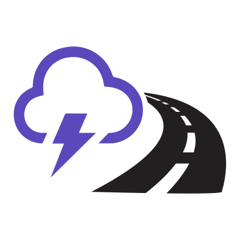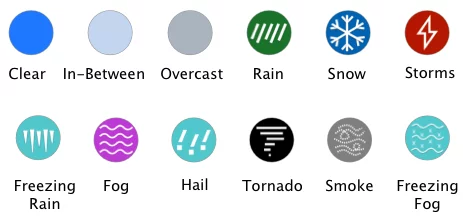


I70 Weather
I-70 Utah Weather
I-70 Kansas Weather
I-70 Missouri Weather
I-70 Illinois Weather
I-70 Indiana Weather
I-70 Ohio Weather
I-70 Pennsylvania Weather
Chicago to Denver Drive
Denver to Vail Drive
Driving Denver to Santa Fe Weather
Driving Denver to Colorado Springs Weather
Denver to Aspen Drive
Interstate 70 (I-70) in Colorado is one of the most scenic and challenging highways in the United States. Spanning from the Utah border through Denver and into the Rocky Mountains, I-70 is known for its rapidly changing weather, steep grades, and high elevations. If you’re traveling I-70 in Colorado, staying informed about current and forecasted weather conditions is essential for safe and efficient travel.
Pro Tip: Before traveling I-70 in Colorado, especially in winter, always check road closures, chain laws, and weather alerts. Pack emergency supplies, allow extra travel time, and be prepared for quick changes in mountain conditions.
When driving Colorado’s stretch of Interstate 70, keeping an eye on I‑70 Weather is crucial for navigating the high country safely. Winding more than 450 miles across the Rockies, Colorado’s I‑70 climbs above 11,000 ft at Loveland Pass and pierces the Continental Divide through the Eisenhower–Johnson tunnels, where sudden snow squalls and subzero temperatures can close lanes without warning.
In winter, avalanche control and icy fog add risk, while summer afternoons often bring high‑elevation thunderstorms and hail near Vail and Aspen. Beyond weather hazards, Colorado’s I‑70 corridor offers epic scenery: soak in steam‑rising pools at Glenwood Springs, admire the sheer red walls of Glenwood Canyon, ski world‑class resorts at Breckenridge and Keystone, or catch a sunset concert at Red Rocks Amphitheatre just outside Denver. Monitoring real‑time I‑70 Weather forecasts, snow advisories, wind warnings, or storm watches; helps you plan mountain passes, avoid closures, and focus on the unforgettable beauty of Colorado’s backbone.
I70 Colorado connects cities on I70 including Burlington, Seibert, Limon, Byers, Denver, Frisco, Vail, Beaver Creek, Glenwood Springs, and Grand Junction and spans east to west across the middle of Colorado. I-70 is the main interstate used to access ski resorts such as Vail and Beaver Creek in Colorado. The Colorado National Monument located just northwest of Grand Junction on I70 is a less traveled but beautiful National Park, especially when the weather is good with blue skies.
Copyright 2026 Concept Elements Inc. | Privacy Policy | EULA
| Cookie | Duration | Description |
|---|---|---|
| cookielawinfo-checbox-analytics | 11 months | This cookie is set by GDPR Cookie Consent plugin. The cookie is used to store the user consent for the cookies in the category "Analytics". |
| cookielawinfo-checbox-functional | 11 months | The cookie is set by GDPR cookie consent to record the user consent for the cookies in the category "Functional". |
| cookielawinfo-checbox-others | 11 months | This cookie is set by GDPR Cookie Consent plugin. The cookie is used to store the user consent for the cookies in the category "Other. |
| cookielawinfo-checkbox-necessary | 11 months | This cookie is set by GDPR Cookie Consent plugin. The cookies is used to store the user consent for the cookies in the category "Necessary". |
| cookielawinfo-checkbox-performance | 11 months | This cookie is set by GDPR Cookie Consent plugin. The cookie is used to store the user consent for the cookies in the category "Performance". |
| viewed_cookie_policy | 11 months | The cookie is set by the GDPR Cookie Consent plugin and is used to store whether or not user has consented to the use of cookies. It does not store any personal data. |